| IN A NUTSHELL |
|
The European Union (EU) is increasingly concerned about the growing aggression from Russia and the uncertainties surrounding American protection. This has reignited discussions about whether Europe should develop its own nuclear deterrence capabilities. The notion of a European nuclear weapon, once avoided, has resurfaced in diplomatic circles, raising questions about its technical viability and the geopolitical implications it might entail. As the continent evaluates its security strategies, the idea of a self-reliant European defense framework is gaining traction amidst the shifting global landscape.
American Nuclear Shield: A Fragile Reliance
For decades, Europe has relied heavily on the American nuclear umbrella for its security. This reliance stems from the NATO treaty’s Article 5, which commits member states to mutual defense. However, this confidence is waning. Recent ambiguous statements from the U.S. administration have sown doubt among European allies about the reliability of American protection in the event of a conflict with Russia. This shift in sentiment is causing European diplomats to reconsider their security strategies, questioning whether Europe should develop its own nuclear arsenal as a precautionary measure.
The erosion of trust in the American commitment comes at a time when Russia’s military activities are intensifying. With increased production of munitions, drones, and missiles, Russia is bolstering its military presence near the borders of Finland, Norway, and the Baltic states. Moreover, Russian strikes are pushing further west into Ukraine, posing a direct threat to Polish defense systems. These developments underscore the urgency for Europe to reassess its security dependencies and consider the feasibility of a nuclear deterrent independent of the United States.
The Prospect of an “Euro-Bomb”
The concept of a European nuclear weapon, or “Euro-bomb,” is gaining attention in strategic circles. Alexander Bollfrass, a nuclear arms expert at the International Institute for Strategic Studies in London, suggests that a European defense confederation could potentially produce nuclear warheads within three years. This timeline is comparable to the Manhattan Project during World War II. Europe already possesses several technical advantages. Germany and the Netherlands have uranium enrichment capabilities, Sweden has expertise in plutonium extraction, and Italy has advanced space launch technology.
Additionally, European-designed aircraft such as the Swedish Gripen and the Eurofighter could be modified to carry nuclear payloads. However, the development of a Euro-bomb would require significant coordination among participating countries, a clear doctrine for its use, and a unified command structure for rapid response in the face of threats. Despite these capabilities, the geopolitical and diplomatic ramifications of pursuing a European nuclear arsenal remain a critical consideration.
Challenges in Building Consensus
While Europe has the technical means to develop a nuclear arsenal, achieving political consensus poses a formidable challenge. The continent’s existing nuclear powers, France and the United Kingdom, are bound by the Treaty on the Non-Proliferation of Nuclear Weapons (NPT), which prohibits the transfer of nuclear weapons to other states. Therefore, a European nuclear project would likely need to be led by non-nuclear states, potentially circumventing the NPT and altering Europe’s nuclear landscape.
Such a move could have far-reaching diplomatic consequences, potentially escalating an arms race with China or regional powers seeking strategic parity. The prospect of a Euro-bomb remains contentious, as it would signify a departure from the shared deterrence model that has prevailed since 1949. Moreover, this initiative could provoke a response from Russia and other global actors, further complicating Europe’s security environment. As the United States’ commitment to its European allies comes into question, the feasibility of a unified European nuclear deterrent remains a subject of intense debate.
Military and Economic Implications
The pursuit of a European nuclear deterrent would have significant military and economic implications. Militarily, it would require substantial investment in infrastructure, research, and development. The adaptation of existing military platforms to accommodate nuclear capabilities would also necessitate extensive modifications and testing. Economically, the cost of developing a nuclear arsenal could strain national budgets, diverting resources from other critical areas such as conventional defense, healthcare, and education.
Furthermore, the establishment of a European nuclear force would necessitate a reevaluation of military alliances and partnerships. It could alter the dynamics within NATO, potentially leading to a reconfiguration of defense responsibilities and resource allocations. The economic burden of maintaining a nuclear deterrent could also impact Europe’s competitiveness in other sectors, influencing trade and investment patterns. As Europe weighs the potential benefits and drawbacks of a nuclear deterrent, the long-term implications for military strategy and economic stability remain crucial considerations.
As Europe grapples with the challenges of modern security dynamics, the question of developing its own nuclear deterrent continues to linger. While the technical capabilities exist, the geopolitical, diplomatic, and economic ramifications of such a decision are profound. How will Europe navigate these complexities and determine its future role in global security?
Did you like it? 4.6/5 (21)

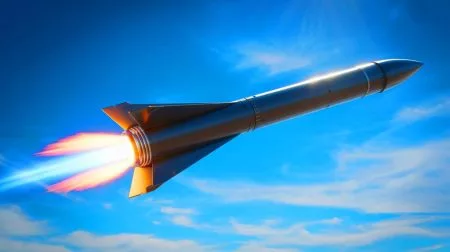
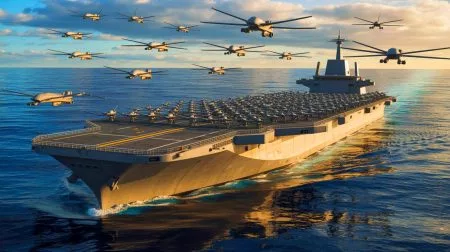


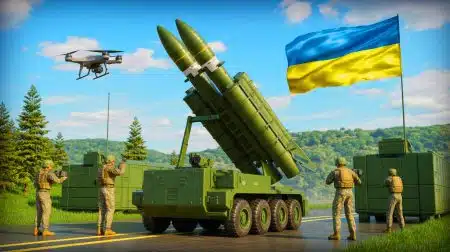
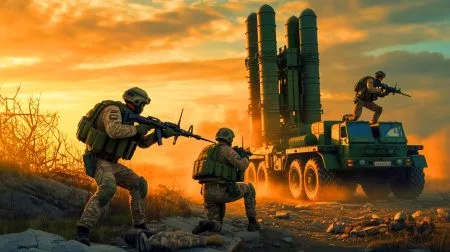
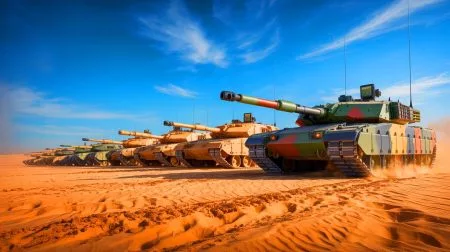

Is it really possible to build a nuclear arsenal in just three years? Sounds too ambitious to me! 🤔
This is a bold move for Europe. But can they truly achieve consensus on something this big? 🤔
Is this really feasible within three years, considering the current political climate?
Wow, I didn’t even know Europe was considering this. Thanks for the insight! 👍
Why would Europe risk escalating tensions with Russia by pursuing a Euro-bomb?
Seems like a risky venture. What are the odds of this backfiring diplomatically?
This article is very informative, thank you for shedding light on such a complex issue!
Why not just strengthen ties with the US instead of going nuclear? 🤷♂️
Euro-bomb”? Sounds like a new energy drink! 😂
Does Europe truly need its own nuclear deterrent, or is this just political posturing?
Has anyone considered the environmental impact of developing nuclear weapons in Europe?
How does France and the UK factor into this plan given their existing nuclear capabilities?
Three years? More like three decades. Let’s not kid ourselves. 😄
Grateful for such an informative piece, but I’m more concerned about the economic costs. 💸
Three years seems optimistic. Are they underestimating the complexity involved?